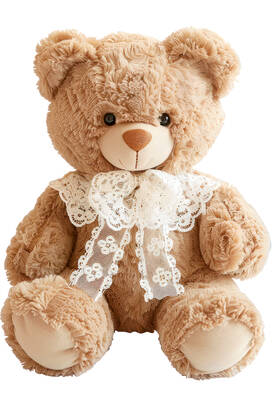對話 Dialogue
清清:週末我去台北中正紀念堂看了哆啦A夢的展覽,好感動!你也喜歡哆啦A夢嗎?
Qīngqing: Zhōumò wǒ qù Táiběi Zhōngzhèng JìniànTáng kàn le Duōlā Ē Mèng de zhǎnlǎn, hǎo gǎndòng! Nǐ yě xǐhuān Duōlā Ē Mèng ma?

PHOTO COURTESY OF PIQSELS/ 照片:Piqsels提供
華華:喜歡啊!這部動畫已經紅了好幾十年了,深受大朋友、小朋友的喜愛。
Huáhua: Xǐhuān a! Zhè bù dònghuà yǐjīng hóng le hǎojǐshí nián le, shēnshòu dàpéngyǒu, xiǎopéngyǒu de xǐ’ài.
清清:我媽媽說以前哆啦A夢不叫「哆啦A夢」,叫「小叮噹」,說起機器貓小叮噹跟大雄,無人不知,無人不曉。
Qīngqing: Wǒ māma shuō yǐqián Duōlā Ē Mèng bú jiào 「Duōlā Ē Mèng」, jiào 「Xiǎo Dīngdāng」, shuōqǐ Jīqì māo Xiǎo Dīngdāng gēn Dàxióng, wúrén bùzhī, wúrén bùxiǎo.
華華:每次看到小夫的驕傲,還有胖虎的霸道,就覺得大雄怎麼還能跟他們做朋友?
Huáhua: Měicì kàndào Xiǎofū de jiāo’ào, háiyǒu Pànghǔ de bàdào, jiù juéde Dàxióng zěnme hái néng gēn tāmen zuò péngyǒu?
清清:你不覺得其實現實生活裡,這種人哪裡都是嗎?只是看你要不要為了生存,想辦法跟他們和平共處而已。
Qīngqing: Nǐ bù juéde qíshí xiànshí shēnghuó lǐ, zhè zhǒng rén nǎlǐ dōu shì ma? Zhǐshì kàn nǐ yào búyào wèile shēngcún, xiǎng bànfǎ gēn tāmen hépíng gòngchǔ éryǐ.
華華:有人說這部動畫並不是給小孩子看的,不同的年紀看這個卡通,都會有不同的感想,能歷久不衰也是有原因的。
Huáhua: Yǒurén shuō zhè bù dònghuà bìng búshì gěi xiǎoháizi kàn de, bùtóng de niánjì kàn zhèige kǎtōng, dōu huì yǒu bùtóng de gǎnxiǎng, néng lìjiǔ bùshuāi yěshì yǒu yuányīn de.
清清:是啊!電視常常重播,只要有空,我就會跟著回味一下。
Huáhua: En! Zhǎnlǎn háiméi jiéshù, kànlái wǒ yě yīnggāi zhǎo ge shíjiān qù cānguān cānguān le.
華華:嗯!展覽還沒結束,看來我也應該找個時間去參觀參觀了。
Huáhua: En! Zhǎnlǎn háiméi jiéshù, kànlái wǒ yě yīnggāi zhǎo ge shíjiān qù cānguān cānguān le.
翻譯 Translation
Qingqing: This weekend, I went to Taipei’s Chiang Kai-shek Memorial Hall to see the Doraemon exhibition. It was so touching! Do you also like Doraemon?
Huahua: Yes! This animation has been popular for decades, and is deeply loved by both adults and children.
Qingqing: My mom said that in the past, Doraemon wasn’t called “Doraemon” but “Xiao Dingdang.” Talking about the robotic cat Doraemon and Daxiong, everyone knows them.
Huahua: When I see how Xiaofu is so full of himself and Panghu is so overbearing, I wonder how Daxiong can still be friends with them.
Qingqing: Don’t you think these kinds of people are everywhere in real life? It just depends on whether you want to endure for survival and find a way to peacefully coexist with them.
Huahua: Some say this animation isn’t just for kids. People of different ages have different feelings when watching this cartoon. There is a reason for its enduring popularity.
Qingqing: Yeah! It’s frequently replayed on TV. Whenever I have time, I reminisce about it.
Huahua: Hmm! The exhibition hasn’t ended yet. It looks like I should also find the time to go and visit it.
生詞 Vocabulary
1. 動畫 (dònghuà) animation
2. 驕傲 (jiāo’ào) be full of oneself, arrogant
3. 霸道 (bàdào) overbearing, bossy
4. 和平共處 (hépíng gòngchǔ) coexist peacefully
5. 卡通 (kǎtōng) cartoon
6. 歷久不衰 (lìjiǔ bùshuāi) [Idiom] enduring, stand the test of time
7. 重播 (huíwèi) replay, rerun
教材音檔 Audio Files
國立清華大學華語中心提供
By National Tsing Hua University Chinese Language Center:

★ Bilingual Story is a fictionalized account. 雙語故事部分內容純屬虛構。 Kevin leaned over the bubbling pot. “Hey. . . are you okay? You’ve barely touched your food.” Zoey blinked. Her face was red — not from blushing, but from the “mala” spice and the heat of the room. Her blond hair clumped to her face like strands of fine spaghetti. Her carefully applied makeup now streaked. “This isn’t what I expected,” she said softly, forcing a smile. All around them, Kevin’s friends were laughing, shouting, and tossing ingredients into the broth. The air smelled of chili oil and garlic.

Picture this: contestants are walking gracefully across a stage, competing for the highly desired title of “most beautiful.” However, these participants aren’t fashion models—they’re camels. Welcome to the extraordinary world of the Pushkar Fair, where beauty contests take on an entirely different meaning. The Pushkar Fair is held annually in the small desert town of Pushkar, India, usually in November. It began as a livestock trading event where farmers and herders gathered to buy and sell camels, horses and cattle. Over time, it has grown into a major cultural carnival that attracts thousands of tourists from around the world.

A: Major League Baseball’s 2025 World Series took place last week. The games between the Los Angeles Dodgers and Toronto Blue Jays were so exciting. B: As the highest-paid baseball player in the world, Shohei Ohtani of the Dodgers was an incandescant superstar. A: The Dodgers signed a record-breaking 10-year, US$700 million contract with Ohtani in 2023. As former ESPN reporter Joon Lee analyzed, the team quickly made back all the investment in the player’s first season. B: Wow, how is that possible? A: Firstly, tourism from Japan to Los Angeles has surged by 90 percent since Ohtani signed the deal, with the

Continued from yesterday(延續自昨日) https://www.taipeitimes.com/News/lang If plushie charms are cute little nods to people’s interests, ita bags are full-on declarations. The term “ita” comes from the Japanese word itai, which means “painful” and reflects the overwhelming visual intensity of these bags. An ita bag is essentially a handbag, backpack, or tote meticulously decorated with an extensive collection of merchandise dedicated to a specific character or idol. These bags usually feature a clear plastic window to display carefully arranged pins, badges, keychains, or fan art. Both the interior and exterior may be covered in fandom memorabilia, creating an aesthetic so intense that it’s almost “painful”